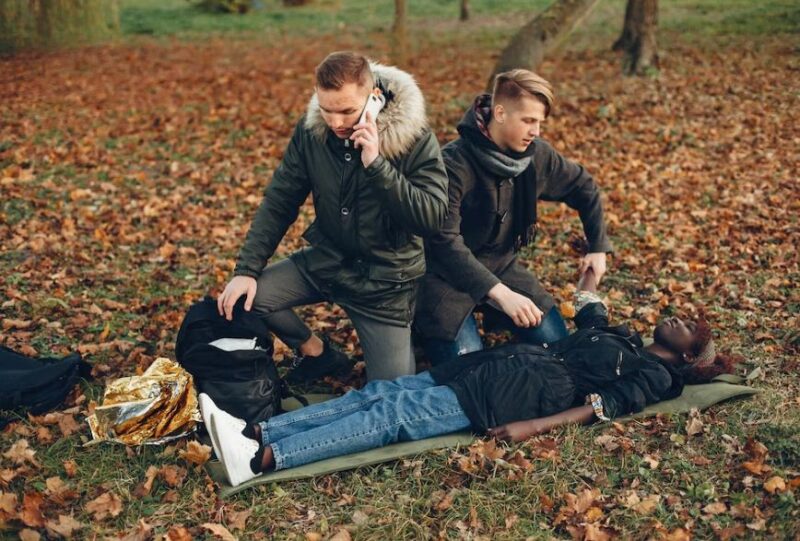Injury abroad is not something most people plan for, yet last year around 28% of US tourists required medical care when injured or becoming ill abroad on vacation. There are many things to consider if you have been injured in a foreign country, such as who is responsible for the medical coverage or providing support once you are back home. In this post, you will learn some key factors to consider when traveling so that you can avoid difficult sections in the event of an injury. Hopefully, by the end, you will have a pretty comprehensive overview of what to do in case of injury, your legal rights, and what to look out for when abroad. So in no particular order of importance, let’s begin.
Understand Your Insurance Coverage For Overseas Medical Care
When it comes to being injured in a foreign country, one of the most important things you’ll need to be aware of is your insurance and what kind of medical care it covers. Most countries provide some form of travelers’ insurance or health coverage for visitors, though you should check with your insurer to see exactly what extent of coverage you have. Knowing the details and scope of your insurance coverage can help keep medical costs from spiraling out of control if an accident involves serious injury or illness. Make sure to get a travel insurer offering medical evacuation and long-term health care in case of long-term disabilities or chronic issues. Furthermore, it is well known that most insurance companies aren’t as forthcoming with compensation as you might like, so you may need to enlist the help of personal injury lawyers specializing in travel insurance claims. If you know what will and won’t be covered under your insurance policy, you will be in a far better position to claim when required and ultimately plan for additional expenses if needed.
Research The Healthcare System Of The Country You Are Visiting
The information in this section might not be relevant if you travel domestically. Nonetheless, when you travel far from home, doing some basic research before departing can pay dividends. Healthcare systems vary widely around the world. For example, EU citizens have access to free or low-cost health care, whereas non-EU citizens may not be eligible. In countries with private health care, like Australia, you must pay out of pocket or use insurance to get medical treatment. Knowing these differences in advance can ensure you receive the best care while traveling and are prepared to cover any financial obligations due to an injury. Additionally, some countries simply lack the most elementary level of care that you might be used to, in which case you should ensure that your insurance covers medical evacuation and you are sufficiently prepared for what might come your way (even more vital if traveling with kids).
Familiarize Yourself With The Applicable Laws And Regulations
If you are injured while traveling abroad, it is essential to familiarize yourself with the laws and regulations of the country you are visiting. The law may differ significantly from those at home, so doing your research before an accident can help you be better prepared if tragedy strikes. For example, in many developing countries, you may have to pay a fine on eh spot if you are deemed to have caused the accident, and any negation can take away precious time that could be better spent in the hospital. In addition, some countries require that all medical bills be paid out of pocket rather than by a third-party such as your insurance. In cases like these, you could incur very high medical costs if you haven’t adequately researched beforehand. If you find yourself in a situation like this, you will likely need an attorney to help you recover your losses as soon as possible.
Contact Your Embassy Or Consulate For Assistance
One of the most important things you should do if you are injured in a foreign country is to contact your embassy or consulate. They can provide you with advice, assistance, and help throughout your time abroad. Additionally, they will be able to refer you to local medical facilities that can provide proper medical treatment for the specific injury. Your embassy or consulate will also play a role in helping you get back home should your injury require it. For example, they will advise on travel insurance and other financial assistance, such as contacting family members for monetary aid. Finally, they may even be able to coordinate additional services, such as finding language translators and providing legal advice if necessary.
Ask For An Interpreter If Needed
If you don’t speak the language of the country you are visiting, communicating with medical personnel can become challenging and even dangerous if miscommunication leads to misdiagnoses. Therefore, you shouldn’t hesitate to ask for an interpreter in any hospital or urgent care facility you visit. An interpreter can help explain complex medical terms and procedures, relay questions and answers between patients and doctors, and provide a much-needed bridge of understanding between both parties. Furthermore, many countries now require that medical professionals must offer translation services to foreign travelers. If nobody is available to translate on your behalf, you might need to resort to services such as Google translate. However, unless you download the local language to your device, you will need to have internet available (not to mention a fully charged device). Therefore, it is in your best interests to go old-school and carry a phrase book with you that you can refer to when needed.
Seek Second Opinions If Necessary
Getting a second opinion is essential regarding injury while on vacation. A local hospital may provide quick relief, but it’s often best to seek another viewpoint. No one wants to be faced with a scenario of uncertainty when it comes to their health in an unfamiliar setting. A second opinion can be the difference between getting a full recovery and continuing to battle with issues that could have been avoided. It pays off in spades to do your due diligence and get reassurance from another qualified healthcare practitioner, no matter the location or circumstance. The opinion of two qualified medical professionals will give you far more information for making an informed decision about your health and well-being than depending solely on one doctor’s judgment. Going beyond the first recommendation is often well worth the effort.
Being injured in a foreign country can be a stressful and often bewildering experience, so before you travel, you should take some time to research your insurance options, what it covers, and the laws in your host nation. You should also check that any insurance policy you take out includes medical evacuation, especially if you visit a developing country with suboptimal medical facilities and care.










